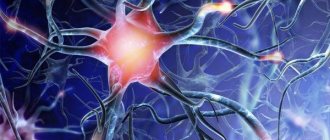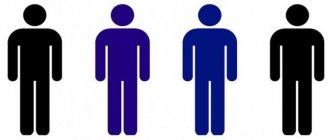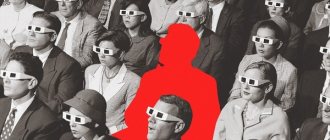More than once in his life a person faces a dilemma. The concept of a dilemma implies that a person must make some important decision that requires a conscious approach, weighing all the pros and cons, and facing difficulties after the decision has been made. There are many types of dilemmas, depending on the situation and the methods for solving them. The online magazine psytheater.com will tell you how to make a choice when you are faced with a situation where two or more decisions are mutually exclusive, but both are important.
What a dilemma is can be better explained by examples:
- Where to go to work: where no work experience is required and they pay 1000 rubles a day right away, or where career growth and development of useful skills are possible, but at least education in a specialty is required?
- Who to choose: a young and energetic guy who may be a womanizer, or a mature and calm man who may turn out to be uninteresting and boring?
- What to wear to a job interview: a formal suit or put together an outfit from separate parts?
- How to cure a serious illness: with the help of doctors in your city or go to another country where they provide guarantees of recovery?
A dilemma is not when it is very easy for you to make a choice and a decision. On the contrary, a dilemma is when you need to solve a certain issue with which you have been tormented for several days and even weeks, because you cannot make a choice, you do not know another solution, because the known options do not suit you, you cannot get rid of the problem without solving it .
A dilemma is a solution to an important issue, and the solution options are mutually exclusive, equally important and valuable to a person, so he cannot make a choice. If someone found himself in a love triangle, where two candidates were fighting for his heart at once - interesting, beautiful, attractive, then everyone can say how difficult it is to immediately decide who to refuse and with whom to start building a relationship.
Here we can immediately identify one of the reasons for the emergence of dilemmas, that is, the inability to instantly make a decision and be satisfied with it - the lack of complete information about the objects between which a person chooses. When a person does not know other people well, it is difficult for him to decide which of them is best suited for the role he offers them. For example:
- It is difficult for an employer to know who is better suited for the position they are offering when one has experience but no education, and the other has education but no experience.
- It is difficult for a girl to choose between two men, where one is rich but not loved, and the second is loved but not rich.
When a person doesn’t know other people well, it’s difficult for him to make a choice right away. The same applies to situations when a person chooses between phenomena, objects or something else. For example, it is difficult for a person to make a choice between two cars that cost the same. One car is prestigious, but used, and the second is new, but not prestigious.
What is a dilemma?
All people face dilemmas. For example, if there is a limited amount of money, everyone in a store has to give up one thing in order to buy another. However, if in a store you have to solve a dilemma instantly, no matter how sad it may be to put the desired products out of the basket, then in life a person may not solve some issue for months, waiting for a good opportunity or even letting everything take its course.
What is a dilemma? This is a problem that a person needs to consciously solve, choosing between two equivalent and equally important options that exclude each other. In simple words, this can be represented as a person finding himself at a crossroads, where he needs to unambiguously decide whether he will go right or left. There is no third option that could include the previous two, which is the essence of the dilemma. You need to go either right or left, which will lead to the following:
- To the refusal of another option for solving the problem. A person, choosing the first option, refuses the second, as well as vice versa: when choosing the second option, he refuses the first.
- To obtain certain consequences. The person has probably already thought about what kind of future will come when he prefers one or another solution to the problem. Moreover, each option offers its own future, which will not be realized if you choose another solution option.
- To receive certain deprivations. Why did the dilemma arise? Because the person realized that if he chose one of the options, he would be deprived of certain privileges that he was given when choosing another option. If a girl chooses a rich man, then she will lose love, and if she chooses a beloved man, then she will live in poverty. The choice becomes painful, since the girl wants to live in both love and wealth. However, the options she has do not allow her to achieve what she wants.
- To receive certain benefits. Behind every solution to a problem there is a certain benefit that a person cannot refuse. The choice would be easy if a person did not see anything important and useful for himself behind some option. However, the dilemma arises when both mutually exclusive options provide him with certain goods that, from his point of view, are equivalent.
All people face dilemmas. Here we can remember that a person is periodically forced to decide whether to follow his desires or live according to the norms of society. Not every behavior is rewarded by society, but it can achieve the desired goal. What will a person choose in this case?
Do you like other people or live the way you want, but at the same time learn to receive love and support only from yourself and some individuals who also agree with this way of life? To be a social person and adapt to those around you, or to live for your own pleasure, having only a limited circle of like-minded people? A person is constantly forced to solve dilemmas where options are mutually exclusive and provide certain benefits that are difficult to refuse.
In psychology, the dilemma is of some interest because it is about a problem where the solution options do not provide complete satisfaction and happiness. You can often hear here that there is no need to make a choice, but that it is better to find a solution to the problem that would fully satisfy a person’s needs. However, such situations rarely occur. Often a person faces a dilemma where, when choosing one of the options, he is deprived of the privileges of the second decision and faces certain difficulties that would not arise if he made a different decision (however, with a different decision there would be difficulties that would not arise when choosing first decision).
Thus, a dilemma is a problem in which:
- A person cannot fully satisfy his needs, otherwise the issue would be resolved very quickly.
- A person is forced to choose which goods to give up in order to acquire other goods.
- A person is forced to choose which difficulties to face in order not to face other problems.
- A person is forced to choose what kind of future to build, while it will be deprived of the privileges that he could have had if he had chosen a different solution.
Greek origin. Math and Spelling
We owe this definition to the Greek language. The literal translation from the Greek is "double lemma". Thus, it is not so difficult to remember how this word is spelled: with one “m” or with two. You just need to clearly understand that a lemma is an auxiliary theorem in mathematics that has no independent value and is necessary only to prove another theorem. And only two letters “m” are always written in this term.
If the information given above is retained in memory, then there will be no problems with writing the word. Sometimes the deck is shuffled very whimsically, as M.A. Bulgakov wrote, and knowledge of mathematics can help so that a person makes fewer mistakes in the Russian language, and he does not have a question about how to write “dilemma” or “dilemma”.
Types of dilemmas
There are two types of dilemma: moral and ethical. A moral dilemma is when a problem concerns a person personally, and each option for solving the problem requires him to violate certain moral principles. An ethical dilemma is a social problem where the solution options affect the norms of society. Whatever a person chooses, he will have to violate moral or ethical laws.
A person makes a choice every day. Many people don’t notice this, but you are already making a choice, starting in the morning. At every step you choose: what time to wake up, brush your teeth or not, how to get to work, say hello to your boss or not, etc. Of course, it seems to you that you are not making a choice, but you are forced to behave in one way or another conduct as society and the rules of decency require of you. But you are already making a choice to act in accordance with the rules and requirements that society puts forward for you, and not to think with your own head and decide for yourself what to do. Even doing nothing, not choosing, is also a choice. You chose inaction instead of action - this is also a choice, followed by its consequences.
Why is it difficult for a person to make a choice, especially when he makes it consciously, realizing that some kind of decision needs to be made? There are two significant factors here.
1 – Doubts. Doubts themselves are energy-consuming. If you doubt what decision to make, then you become more tired and waste energy in the process of experiencing your doubts. It is not the decision itself that takes away your strength, but your doubts that arise when you are afraid to choose one option or another.
2 – Equivalence of solutions. It is especially difficult for a person to make a choice if the options are equivalent to each other. When a person equally values both options for getting out of a situation, it is easier for him to postpone making a decision until later. But in fact, a person postpones solving his problem until another individual does it for him.
It is difficult for a person to make a choice, because then he will have to give up one thing for the other. That’s why it’s easier for him not to make any choice, and he says: “I’ll let everything take its course, I won’t decide anything. As I am destined, so it will be.” And here the person again shifts the responsibility for making decisions to others - to fate. Allegedly, fate must decide how a person should live further. She will decide sooner or later. But now the man has already made his choice again: fate will decide his future life, and not choose and be responsible for his choice. And again, a person behaves like a weak slave who cannot make a choice himself and bear responsibility for all the consequences that will follow him later.
External characteristics
The following characteristics are provided for Laquedanzi birds:
- The head is medium in size, proportional to the body, the neck is long.
- The comb is shaped like a jagged leaf, colored dark purple, it may have 5 or 6 notches, the lobes are colored dark purple.
- The eyes are large, round, purple-black, the area around the eyes is dark purple.
- The beak is dark gray, almost black.
- The build is light, not large.
- The shape of the case resembles the Latin letter “V”.
- The chest is wide and powerful.
- The wings are well developed.
- The feathers grow densely, are black with a hint of green, and shiny. Black fluff grows between the feathers.
- The legs are painted dark gray.
- The tail is long, bushy, raised upward.
- Their character is not pugnacious, they get along without problems, but they are easily frightened.
- The body weight of a rooster is about 1.8 kg, the weight of a chicken is about 1.4 kg.
Important characteristics for admission to breeding are:
- The absence of other shades in the plumage except black with a green tint.
- Egg production is at least 160 eggs per year.
- The eggs have a green colored shell.
Solving dilemmas
If a person is faced with a dilemma, it means that he is forced to resolve a certain issue. There would be no problems if the dilemma could be transferred to the will of another person. However, first the one who encountered it must make a decision, so that then everyone else can make their choice.
Solving dilemmas is made difficult by the fact that a person does not see the full satisfaction of his desires when choosing one of the options. He also does not have the opportunity to refuse to choose one of the options, since they are the only ones provided to him. A person has to choose between what he will lose and what unpleasant things he will face if he chooses something.
That is why people often try to delay the moment of making a decision as long as possible. They try not to talk about the dilemma, to avoid it, sometimes they begin to reason logically in order to somehow reduce the tension in this issue. However, sooner or later you have to make a choice. How to do it?
- Clearly pose the question where the dilemma lies.
- Be clear about all the facts and components of the dilemma.
- Find other solutions to the problem that are less noticeable than the two most likely solutions.
- Analyze each option for benefit, effectiveness, and necessity. If you are missing some information about the options, then find out.
- What difficulties and hardships is a person prepared to face when he makes his choice?
It doesn’t hurt to remember what goals a person wants to achieve while he is in the process of achieving them. The man was faced only with the problem of how to cross the river in order to again take the path leading to his happiness. If he forgets where he is going and focuses on what he should do with the river, then he will definitely get stuck and stop. What goal do you ultimately want to achieve when solving the dilemma (river) in question? Choose the option that most contributes to achieving your goal. Of course, it will not completely satisfy you. However, it definitely leads to what you dream of, unlike the second option.
Two definitions
This beautiful and not very clear word has two meanings. One belongs to the realm of logic or philosophy, and the other to psychology or sociology. Let's look at both definitions:
- A combination of two judgments that are opposite in meaning, but without the ability to formulate a third.
- A situation in which you have to choose between two solutions, since they are opposite in meaning and give rise to difficulties of the same scale.
It is the second meaning that is most often implied in book and journalistic speech. Hence the expressions: “unsolvable dilemma”, “dangerous dilemma”, etc. In a certain sense, it is consonant with the well-known expression “there is no third option.” Such situations are not uncommon in everyday life. The simplest example: a person needs to decide whether to stay in a well-paid job, which is a burden to him, or change it to a more pleasant one, but one that brings in significantly less income.
Neutralizing potential killers
Over the past 20 years, neuroscientists and psychologists have conducted many tests that prove that the tendency to violence is largely determined by disorders in the brain. For example, dissocial, borderline, and narcissistic personality disorders often manifest themselves in this way (although, of course, not all people with this diagnosis are prone to violence). In all these pathologies, when studied, characteristic physiological manifestations are revealed: changes in the tonsils, which are involved in the formation of emotions, changes in the level of metabolism in the anterior cingulate cortex, which is involved in the control of impulsive reactions, etc.
For now, such studies remain nothing more than just research, but perhaps in the future they will become the basis for creating technology for early detection of propensity for violence. Is proactive surveillance of a potential killer justified if he hasn't done anything yet?
Ushakov's Dictionary
dilemma
dilemma , dilemmas, women.
(
Greek
dilemma - double sentence) (
book
).
1.
A polemical argument consisting in the fact that the opponent is offered a choice of two opposing positions, excluding the possibility of a third.
2.
Circumstances that force one to make one of two decisions, the choice between which is extremely difficult. He was faced with a dilemma: either die of hunger or agree to enslaving conditions.
Post-conventional level (10-15% of the population)
A person comes to his own rules, independent of others. An understanding comes that if the laws dictated by society contradict the personal understanding of the rules and laws, then it is worth following your own judgments, avoiding social orders. Few people are ready to think critically and reach this level.
Stage 5. Social contract and personal rights:
Despite understanding that laws exist “for the common good,” sometimes it is necessary to break social rules in order to help a person. For example, in the dilemma above, Heinz would be acquitted because he broke the law with good intentions.
Stage 6. Universal principles:
At this stage, a person develops his own moral principles, which he applies to everyone else. These principles are independent of imposed laws. Their basis is the decision of the individual himself that it is right to do so.
In this theory, of course, not everything is smooth: the situations are fictitious, and the examples may be biased (as the authors of the theory say). However, this theory can be useful to us as teachers, primarily because a teacher is not only a specialist who teaches a subject, but also an educator who develops students from different aspects, including moral ones. Therefore, we have several options for using this experiment:
- use history for storytelling, stopping at each of the “forks” and discussing all the options, organizing a discussion after completing the task;
- use the story's actions as a basis for role-play (Heinz and the pharmacist, Heinz and the policeman, Heinz in court);
- come up with an alternative ending;
- discuss other options for the development of events;
- ask each other questions, come up with additional questions;
- come up with a similar story;
- prepare students to write essays about morality;
- understand how your students feel about rules, whether they are ready to create, break, follow rules, this way you can diagnose possible impending behavioral problems in the classroom.
Share link:
Ethical
Ethics is a branch of philosophy that studies morality (the rules of conduct accepted in a given society) and morality (can be synonymous with morality or mean the rules of life of a particular individual). The range of ethical issues: good and evil, freedom and responsibility, the meaning of life, conscience, duty, happiness.
Thus, an ethical dilemma is a situation in which these and similar issues are involved. Most often, you have to choose between what is right (from a moral point of view), but unprofitable, and what is bad for others, but beneficial to the chooser.
In social relations, the ethical dilemma is, for example, consumer safety, rights and discrimination, professional ethics, corruption, etc.
Philosophical Dictionary (Comte-Sponville)
dilemma dilemma
♦ Dilemma
In the widespread sense of the word, it is a difficult choice between two equally unsatisfactory possibilities. In the strict sense accepted in logic, it is a type of alternative in which both terms lead to the same conclusion, regarded as inevitable. Philosophers, writes, for example, Montaigne, “are always ready with a dilemma that is comforting for a mortal person: either our soul is mortal or immortal. If she is mortal, then there will be no punishment for her; if she is immortal, it means that she will become better and better” (“Essays”, book II, chapter 12; see also: Pascal, “Penciles”, 409–220). The conclusion from here is the same - there is nothing to be afraid of death. It is easy to see that a dilemma is worth as much as its conclusions. Where is the proof, asks Montaigne, that after death the soul will become better and not worse?
Meaning
Now we are quite ready to discover the meaning of this wonderful concept. Let's use the explanatory dictionary, as always, because we have no reason not to trust it. In it we find two meanings:
- A combination of judgments, conclusions with two opposing positions, excluding the possibility of a third.
- A situation in which choosing one of two opposing solutions is equally difficult.
In the first meaning, this definition is known to mathematicians and logicians, and in the second, it is known to more or less all educated people, regardless of their specific specialization. Therefore, we will talk specifically about the second meaning.
When it has become clear what a dilemma is, then you can turn to specific examples and at the same time think about a rather interesting question.
Varieties
So, what is the dilemma? Something that often happens in life. In addition, there are different types of this phenomenon.
For example, in a purely scientific definition, a constructive and destructive option are distinguished. You can read more about them in a logic textbook. And in a well-known sense, social dilemmas are distinguished, including: ethical, moral, environmental, as well as situations with intriguing names “prisoner’s dilemma”, “secretary’s dilemma” and “Samaritan’s dilemma”. Let's take a closer look at some of these varieties.










